Interested students can find nursing assistant training in Williston, North Dakota that are open for you to enroll in detail below. The list includes colleges, high schools, and community classes that meet the standards of and are approved by the registry. Course directors from one of the facilities can explain to you all the details through their contact numbers listed here.
Bethel Lutheran Home
1515 2nd Avenue West,
Williston, ND 58801
(701) 572-6766
http://www.blnrc.com/
Williston Senior High School
502 West Highland Drive,
Williston, ND 58802
701) 572-0967
http://www.williston.k12.nd.us/District.aspx
Williston State College
1410 University Ave.,
Williston, ND 58802
(701) 774-4200
http://www.willistonstate.edu/
There are a lot of people who are looking for jobless and are looking for a great career opportunity. If you are one of those people, you should start to consider becoming a nursing assistant. This profession is very practical because the training is quick, easy, and very affordable. With its current demand, you will have no problems looking for a job.
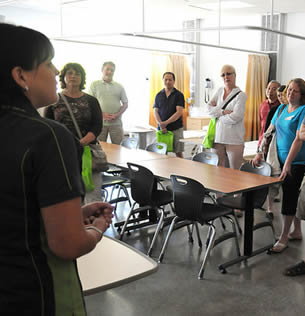 The thing that adds to is practicality is that the Department of Health allows an individual to be hired by a licensed nursing facility even when his training is still ongoing. Individuals that are enrolled in a healthcare facility like a hospital or a nursing home can also do so. Since their training is still not complete, they are only allowed to perform nursing and nursing-related procedures that were already taught in the program, or while being under the direct supervision of a qualified instructor. These individuals must be certified within 4 months from the start of their work.
The thing that adds to is practicality is that the Department of Health allows an individual to be hired by a licensed nursing facility even when his training is still ongoing. Individuals that are enrolled in a healthcare facility like a hospital or a nursing home can also do so. Since their training is still not complete, they are only allowed to perform nursing and nursing-related procedures that were already taught in the program, or while being under the direct supervision of a qualified instructor. These individuals must be certified within 4 months from the start of their work.
In order to be certified, you will have to challenge the competency evaluation exam, which consist of an oral/written exam and a clinical skills evaluation. In order to be certified, he must pass both exams within 3 attempts. If he fails after the 3rd try, he will be required to start all over by enrolling in again in a CNA program and retake the test.
If you are a CNA from a different state, then you may directly apply to gain entry into the NAR by applying for reciprocity. When you apply, you must have a valid license and be able to pass the criminal background check. You will need to send your applicant letter along with the necessary documents to the Registry.
If you feel that you want to aim higher, you can try to become a medication assistant II. This is an advance certification that requires one to be a registered CNA first before one can apply for training. The MA II training consists of 40 hours of lectures, 8 hours of lab work, and another 36 hours of on-the-job training. Like the process of becoming a nursing assistant, you must also challenge the MA license exam before you can start working as one. For more information, you can follow this link: http://www.cga.ct.gov/2000/rpt/2000-R-0705.htm.
This city is the county seat of Williams County. Founded in 1887, the city was named after Daniel Willis James, who was a member of the Northern Pacific Railroad Company Board. With a total population of 14,716 people during the 2010 census, they are considered as the 9th largest city in the state. It has a population density of 1,961.1/sq mile. The total area of the city is estimated to be around 7.56 sq miles, where almost all of it is land.
The Trinity Community Clinic – Western Dakota, Trinity Regional Eyecare – Williston Basin, Williston Basin Eye Care Associates, Mercy Medical Center, Wright Chiropractic Office, Fairlight Walk In Clinic, Craven-Hagan Clinic, Orthopaedic Clinic-Mercy Medical Center, are some of the many health care centers that are found in the city. photo attribution: ufv
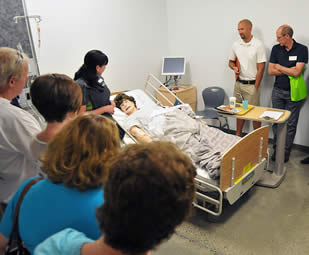 Before you can take the exam, you will have to apply for it and one of its requirements is a certificate of proof that you were able to complete the necessary training course that was approved by the state of North Dakota. Due to the high demand for this profession, you can find that these programs are offered by community technical colleges, private training centers, hospitals, nursing homes, and even online. State-approved programs are required to offer no less than 75 hours of training, which can be completed within 1 to 2 months.
Before you can take the exam, you will have to apply for it and one of its requirements is a certificate of proof that you were able to complete the necessary training course that was approved by the state of North Dakota. Due to the high demand for this profession, you can find that these programs are offered by community technical colleges, private training centers, hospitals, nursing homes, and even online. State-approved programs are required to offer no less than 75 hours of training, which can be completed within 1 to 2 months. According to the law, the only way for you to truly become a nursing assistant is to pass the Federal’s training and testing regulations. By completing a state-approved training program, you will become eligible to apply for the competency evaluation exam, which is officially known as the National Nurse Aide Assessment Program. This exam will test the nursing assistant candidate in both knowledge and competency in performing nursing and nursing-related tasks.
According to the law, the only way for you to truly become a nursing assistant is to pass the Federal’s training and testing regulations. By completing a state-approved training program, you will become eligible to apply for the competency evaluation exam, which is officially known as the National Nurse Aide Assessment Program. This exam will test the nursing assistant candidate in both knowledge and competency in performing nursing and nursing-related tasks.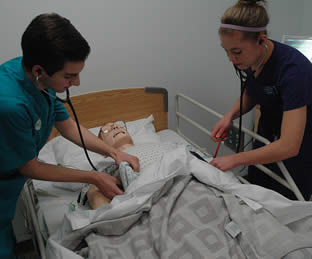 One of the first requirements is that you must complete a CNA training program. Another is that you must also pass the background check to see if you have any criminal records. Once you have met all the requirements, you can then try to take on the license exams.
One of the first requirements is that you must complete a CNA training program. Another is that you must also pass the background check to see if you have any criminal records. Once you have met all the requirements, you can then try to take on the license exams.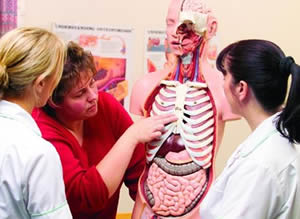 A nursing aide or a nurse aide/nursing assistant works under the supervision of a registered nurse and the medical staff. Nursing aides help the patients by providing routine care such as vital signs taking, performing bed baths, help in feeding, assist in other daily activities like ambulation, and tend to their other health needs so long as the task involved is within the scope of what a nursing aide can do.
A nursing aide or a nurse aide/nursing assistant works under the supervision of a registered nurse and the medical staff. Nursing aides help the patients by providing routine care such as vital signs taking, performing bed baths, help in feeding, assist in other daily activities like ambulation, and tend to their other health needs so long as the task involved is within the scope of what a nursing aide can do.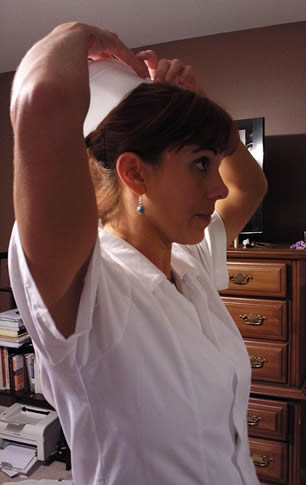 Taking the competency evaluation exam is one of the ways for you to start working as a nursing assistant in any state. The other option is by applying for reciprocity, which is only available for nursing assistants who are already on a Nurse Aide Registry and simply want to transfer and work in a different state.
Taking the competency evaluation exam is one of the ways for you to start working as a nursing assistant in any state. The other option is by applying for reciprocity, which is only available for nursing assistants who are already on a Nurse Aide Registry and simply want to transfer and work in a different state.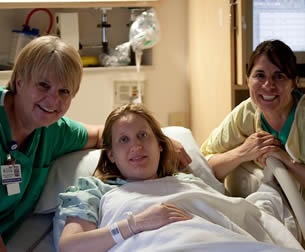 Because of the high demand for the profession, aspiring nursing aides will have no problems looking for a suitable training program near their area to enroll in. On average, the training programs in North Dakota take about 5 to 8 weeks to complete. For those who are hired as a nursing aide by a licensed healthcare facility prior to enrolling will not be charged with any of the training fees. These expenses will be shouldered by the employer.
Because of the high demand for the profession, aspiring nursing aides will have no problems looking for a suitable training program near their area to enroll in. On average, the training programs in North Dakota take about 5 to 8 weeks to complete. For those who are hired as a nursing aide by a licensed healthcare facility prior to enrolling will not be charged with any of the training fees. These expenses will be shouldered by the employer.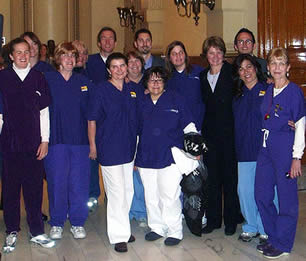 For example, with the increase in the demand for nursing assistant, also comes an increase in the demand for training facilities that will properly educate and train nursing assistant trainees. Training facilities that wish to offer CNA training are required by the DOH to first be certified before they take on any students. A training facility will have to be checked if it meets the state’s standards before it can get certified. The checking is done after the DOH receives the completed application form (http://www.ndhealth.gov/hf/PDF_files/Nurse_Aide_Training_Program_Application_for_Approval_-_10-01-09.pdf).
For example, with the increase in the demand for nursing assistant, also comes an increase in the demand for training facilities that will properly educate and train nursing assistant trainees. Training facilities that wish to offer CNA training are required by the DOH to first be certified before they take on any students. A training facility will have to be checked if it meets the state’s standards before it can get certified. The checking is done after the DOH receives the completed application form (http://www.ndhealth.gov/hf/PDF_files/Nurse_Aide_Training_Program_Application_for_Approval_-_10-01-09.pdf). To ensure that the students will receive the proper education and training, the Department of Health has standardized a training program that must be followed by a program in order to be certified. The DOH has set several manuals that must be taught during the course of the program, although each program may rearrange the order of which they will teach each manual. If you want to certify a training program, you can download a copy of the application forms from this link: http://www.ndhealth.gov/hf/PDF_files/Nurse_Aide_Training_Program_Application_for_Approval_-_10-01-09.pdf.
To ensure that the students will receive the proper education and training, the Department of Health has standardized a training program that must be followed by a program in order to be certified. The DOH has set several manuals that must be taught during the course of the program, although each program may rearrange the order of which they will teach each manual. If you want to certify a training program, you can download a copy of the application forms from this link: http://www.ndhealth.gov/hf/PDF_files/Nurse_Aide_Training_Program_Application_for_Approval_-_10-01-09.pdf.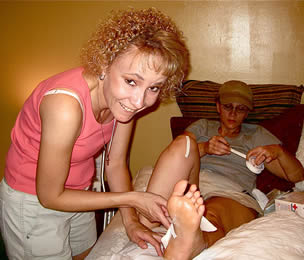 In order to complete a training program, you must be able to meet the required 75 hours of training and pass the final exams. Your training will consist of lectures, laboratory work, and clinical training. During that time, you will be guided and supervised by qualified instructors. You will cover topics such as communication skills, patient’s rights and independence, safety and emergency procedures, basic care, and different medical terms.
In order to complete a training program, you must be able to meet the required 75 hours of training and pass the final exams. Your training will consist of lectures, laboratory work, and clinical training. During that time, you will be guided and supervised by qualified instructors. You will cover topics such as communication skills, patient’s rights and independence, safety and emergency procedures, basic care, and different medical terms. In order to fully work as a nurse aide, you must be on the state’s Nurse Aide Registry. The registry is a listing of all the individuals who were able to complete the approved competency exam and have given the registry the necessary documents and information. You must also be able to pass a routine background check that you will undergo when applying for the state exams.
In order to fully work as a nurse aide, you must be on the state’s Nurse Aide Registry. The registry is a listing of all the individuals who were able to complete the approved competency exam and have given the registry the necessary documents and information. You must also be able to pass a routine background check that you will undergo when applying for the state exams. The certification process begins with you enrolling in a state-certified training program. These programs are required to offer 75 hours of training, which can take about 5 to 8 weeks to complete. While enrolled, you will be spending your time in classrooms, laboratories, and in an actual clinical setting taking care of patients. The last one is particularly true for those who are enrolled in a program that is offered by a licensed healthcare facility.
The certification process begins with you enrolling in a state-certified training program. These programs are required to offer 75 hours of training, which can take about 5 to 8 weeks to complete. While enrolled, you will be spending your time in classrooms, laboratories, and in an actual clinical setting taking care of patients. The last one is particularly true for those who are enrolled in a program that is offered by a licensed healthcare facility.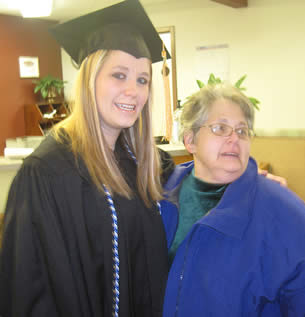 The first step to becoming a CNA in the state of North Dakota is to complete a CNA training program. While enrolled in the training program, you will be spending a few hours on both lectures and clinical experience. If you complete the program, you can then try to apply for the license exams.
The first step to becoming a CNA in the state of North Dakota is to complete a CNA training program. While enrolled in the training program, you will be spending a few hours on both lectures and clinical experience. If you complete the program, you can then try to apply for the license exams.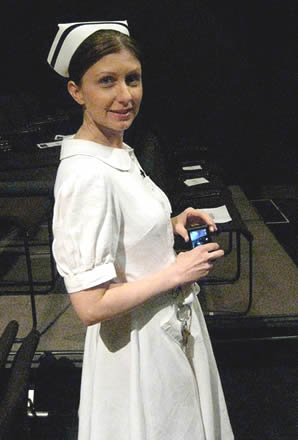 It is highly important that before you handle a resident as a nursing aide is that you must have the proper training. The Nursing Home Reform Act was created to ensure that the quality of care that the residents/patients receive from nursing aides is top quality. That is why you must enroll in a state-certified training class to gain the proper knowledge and skills. You will find that these programs are offered by a variety of training facilities.
It is highly important that before you handle a resident as a nursing aide is that you must have the proper training. The Nursing Home Reform Act was created to ensure that the quality of care that the residents/patients receive from nursing aides is top quality. That is why you must enroll in a state-certified training class to gain the proper knowledge and skills. You will find that these programs are offered by a variety of training facilities.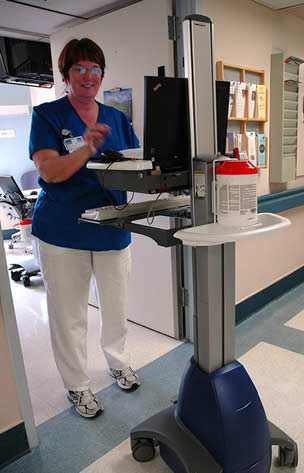 Becoming a nursing assistant in the state of North Dakota is one of the best ways for you to enter the medical field. This type of job is continuously in demand because of the high pay rate of nurses. If you want to proceed to a higher degree in the medical industry, you use this as a great stepping stone.
Becoming a nursing assistant in the state of North Dakota is one of the best ways for you to enter the medical field. This type of job is continuously in demand because of the high pay rate of nurses. If you want to proceed to a higher degree in the medical industry, you use this as a great stepping stone.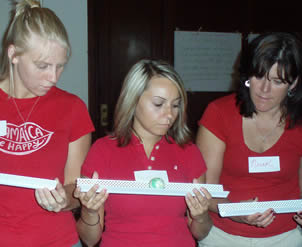 To become a nursing assistant, you will have to enroll in a state-approved training program. An approved CNA program will offer 75 hours of training, with an additional of 16 hours allotted for clinical practice. The students are only required to have a minimum of 16 classroom hours before they are allowed to go on duty in the clinical area. The topics covered during training will cover a wide range of subject like infection control, mental health, basic, care communication skills, and emergency procedures.
To become a nursing assistant, you will have to enroll in a state-approved training program. An approved CNA program will offer 75 hours of training, with an additional of 16 hours allotted for clinical practice. The students are only required to have a minimum of 16 classroom hours before they are allowed to go on duty in the clinical area. The topics covered during training will cover a wide range of subject like infection control, mental health, basic, care communication skills, and emergency procedures.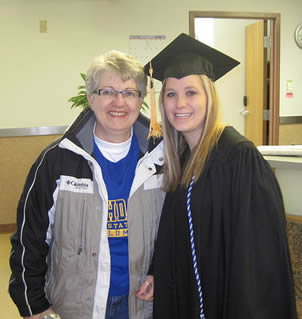 Taking the National Nurse Aide Assessment Program or NNAAP is the only way for you to get a CNA license. A license is a requirement to be able to work long-term in a nursing facility as a nursing aide. For the state of North Dakota, the exams are conducted by Pearson VUE at approved testing centers. Before one is allowed to take, one must apply for it after completing a state-approved training class.
Taking the National Nurse Aide Assessment Program or NNAAP is the only way for you to get a CNA license. A license is a requirement to be able to work long-term in a nursing facility as a nursing aide. For the state of North Dakota, the exams are conducted by Pearson VUE at approved testing centers. Before one is allowed to take, one must apply for it after completing a state-approved training class.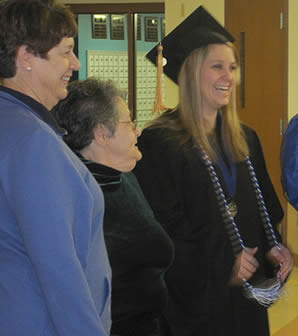 CNA courses in the state are generally offered by community colleges, technical schools, private training centers, nursing homes, and hospitals. A state-approved course must offer a minimum of 75 hours of training, which will be divided into lectures, laboratory works, and clinical practice. Subjects such as infection control, mental health, rehabilitation, personal care, communication skills, and medical terms will be taught in the courses.
CNA courses in the state are generally offered by community colleges, technical schools, private training centers, nursing homes, and hospitals. A state-approved course must offer a minimum of 75 hours of training, which will be divided into lectures, laboratory works, and clinical practice. Subjects such as infection control, mental health, rehabilitation, personal care, communication skills, and medical terms will be taught in the courses.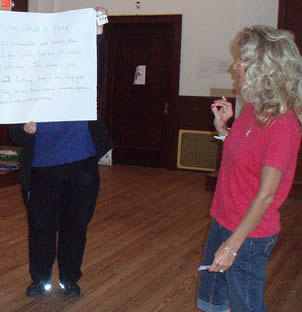 The Nurse Home Reform Act was created back in 1987 to improve the quality of care that the residents in a long-term care facility receive. This now requires aspiring nursing aides to get certified if they wish to work in a nursing home or facility.
The Nurse Home Reform Act was created back in 1987 to improve the quality of care that the residents in a long-term care facility receive. This now requires aspiring nursing aides to get certified if they wish to work in a nursing home or facility. The work done by a nursing aide II is still determined by the tasks or procedures that are delegated by registered nurses. Before a nurse delegates a task, he must consider a set of criteria whether or not the task can be delegated to a nursing aide. The nurse must consider the following:
The work done by a nursing aide II is still determined by the tasks or procedures that are delegated by registered nurses. Before a nurse delegates a task, he must consider a set of criteria whether or not the task can be delegated to a nursing aide. The nurse must consider the following: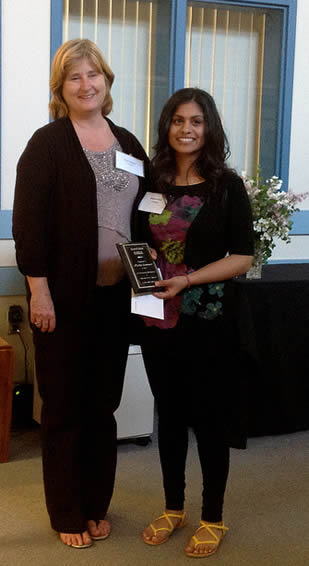 According to OBRA ’87, you must be certified and be on a Nurse Aide Registry to work as a nursing aide. The certification process in the state of North Carolina begins with you establishing eligibility to take the competency exam. You can establish this by completing a state-approved CNA training course; graduating from a nursing education school; complete a refresher course; get the appropriate training from a different state. The advantage of completing a training course in North Carolina is that you will be allowed to work as a nursing aide for up to 4 months, even without your certificate yet.
According to OBRA ’87, you must be certified and be on a Nurse Aide Registry to work as a nursing aide. The certification process in the state of North Carolina begins with you establishing eligibility to take the competency exam. You can establish this by completing a state-approved CNA training course; graduating from a nursing education school; complete a refresher course; get the appropriate training from a different state. The advantage of completing a training course in North Carolina is that you will be allowed to work as a nursing aide for up to 4 months, even without your certificate yet.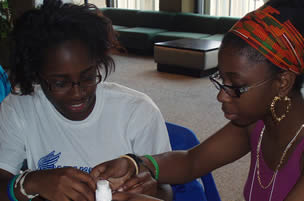 To become a nursing assistant, you will be required to undertake a state-approved training course which lasts for 75 hours. You will be trained in a variety of topics and skills ranging from how to properly assist patients with their daily activities to infection control, to doing emergency procedures when needed. Since nursing assistants mainly work under the supervision of registered nurses, the tasks that they do will depend on what tasks are delegated to them by the nurses and other healthcare professionals.
To become a nursing assistant, you will be required to undertake a state-approved training course which lasts for 75 hours. You will be trained in a variety of topics and skills ranging from how to properly assist patients with their daily activities to infection control, to doing emergency procedures when needed. Since nursing assistants mainly work under the supervision of registered nurses, the tasks that they do will depend on what tasks are delegated to them by the nurses and other healthcare professionals.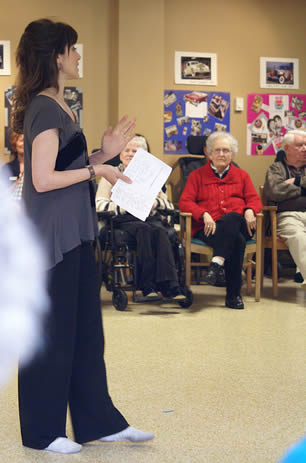 To become a nursing aide I, you must first complete a state-certified nursing aide I training course and pass its competency training. If you have a nursing license, you can directly apply to get into the registry and start to work as one, provided that you do not have any record of abuse, neglect, or misappropriation of a patient’s property.
To become a nursing aide I, you must first complete a state-certified nursing aide I training course and pass its competency training. If you have a nursing license, you can directly apply to get into the registry and start to work as one, provided that you do not have any record of abuse, neglect, or misappropriation of a patient’s property.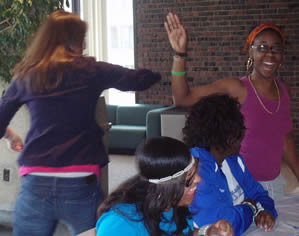 The competency exams consist of a written/oral exam and a skills evaluation on the basic nursing skills that were taught during the training. The results of the exams are released within a few minutes after you take the tests. If there are some technical difficulties, your results will be mailed to you within 5 to 7 business days. If the nurse aide candidate passes all the tests, his name will automatically entered into the Nurse Aide I Registry.
The competency exams consist of a written/oral exam and a skills evaluation on the basic nursing skills that were taught during the training. The results of the exams are released within a few minutes after you take the tests. If there are some technical difficulties, your results will be mailed to you within 5 to 7 business days. If the nurse aide candidate passes all the tests, his name will automatically entered into the Nurse Aide I Registry. To work as a CNA, one must have a nurse aide certificate and be listed on the Nurse Aide I Registry. Since the state does not accept endorsements, the only way to get into the NAR is to challenge and pass the competency exam. The North Carolina Department of Health and Human Services has contracted Pearson VUE to help in the competency exam. The exam consists of a written/oral exam and a skills evaluation.
To work as a CNA, one must have a nurse aide certificate and be listed on the Nurse Aide I Registry. Since the state does not accept endorsements, the only way to get into the NAR is to challenge and pass the competency exam. The North Carolina Department of Health and Human Services has contracted Pearson VUE to help in the competency exam. The exam consists of a written/oral exam and a skills evaluation. For example, you can train to be a CMA. A certified medication aide/assistant is a nursing assistant who is trained to administer selected medications to the patients, while still under the supervision of the registered nurses.
For example, you can train to be a CMA. A certified medication aide/assistant is a nursing assistant who is trained to administer selected medications to the patients, while still under the supervision of the registered nurses. According to the law, all those who want to work as a nursing aide in a certain nursing facility or a private institution must be on the state’s Health Care Personnel Registry, specifically the NAR. The Nurse Aide Registry keeps the records of individuals who have passed the NNAAP exam and are eligible to work as nursing aides.
According to the law, all those who want to work as a nursing aide in a certain nursing facility or a private institution must be on the state’s Health Care Personnel Registry, specifically the NAR. The Nurse Aide Registry keeps the records of individuals who have passed the NNAAP exam and are eligible to work as nursing aides.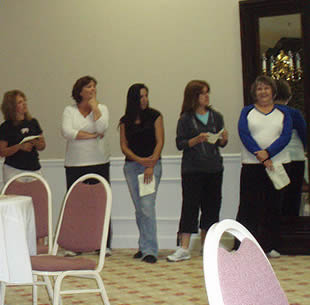 The exams consist of a written and a clinical skills evaluation of the basic nursing skills that are taught to nurse aide I candidates. The written examinations can also be replaced with an oral exam which is offered in English and Spanish. If you wish to have the oral exam, you must indicate the request when you apply to take the tests. After each portion of the tests, the score reports are received approximately 10 minutes after the nursing aide evaluator faxes the tests for scoring. There are some occasions where the results may not be released on the same day due to technical difficulties. If so, the results will be mailed to you within a week form the exam date.
The exams consist of a written and a clinical skills evaluation of the basic nursing skills that are taught to nurse aide I candidates. The written examinations can also be replaced with an oral exam which is offered in English and Spanish. If you wish to have the oral exam, you must indicate the request when you apply to take the tests. After each portion of the tests, the score reports are received approximately 10 minutes after the nursing aide evaluator faxes the tests for scoring. There are some occasions where the results may not be released on the same day due to technical difficulties. If so, the results will be mailed to you within a week form the exam date.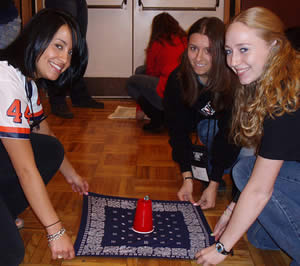 The first one is for those individuals who had never received any proper training as healthcare personnel. Before they should take the competency test, are required to complete a state-approved 75-hour training course. These courses consist of classroom instruction and on-the-job training. There are also training courses that are available for high school students.
The first one is for those individuals who had never received any proper training as healthcare personnel. Before they should take the competency test, are required to complete a state-approved 75-hour training course. These courses consist of classroom instruction and on-the-job training. There are also training courses that are available for high school students. During the day of your exams, you must arrive at least 30 minutes before the actual scheduled time. Late arrivals will no longer be allowed to enter the testing area and will not be allowed to take the exams. For those individuals who were not able to take the exams because of tardiness, they will not be given a refund.
During the day of your exams, you must arrive at least 30 minutes before the actual scheduled time. Late arrivals will no longer be allowed to enter the testing area and will not be allowed to take the exams. For those individuals who were not able to take the exams because of tardiness, they will not be given a refund.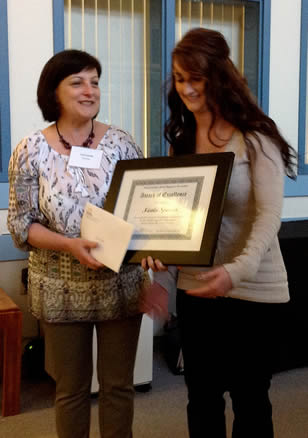 The competency exam is only available to those who received the proper training. This can be from a nursing assistant training program that is approved by the state of North Carolina; a training program from a different state that still meets the requirements of OBRA ’87; or a nursing education program. Certified nursing assistants from other states who want to work in N.C. are also required to take the competency exam, but are not required to undergo any additional training.
The competency exam is only available to those who received the proper training. This can be from a nursing assistant training program that is approved by the state of North Carolina; a training program from a different state that still meets the requirements of OBRA ’87; or a nursing education program. Certified nursing assistants from other states who want to work in N.C. are also required to take the competency exam, but are not required to undergo any additional training. For the first part of the exam, you will be allowed to choose between taking a written or oral exam. The written exam is available in either English or Spanish, and was made to help those with problems with written English. If you want to take the oral exam, you must request for one when you submit your application. Any request for special disability considerations must also be submitted during this time. For both tests, you will be given a total of 2 hours to answer all the questions. All of the items will be multiple-choice, including the second portion of the oral exam which will test your knowledge of common English words used by nursing aides in the care facilities.
For the first part of the exam, you will be allowed to choose between taking a written or oral exam. The written exam is available in either English or Spanish, and was made to help those with problems with written English. If you want to take the oral exam, you must request for one when you submit your application. Any request for special disability considerations must also be submitted during this time. For both tests, you will be given a total of 2 hours to answer all the questions. All of the items will be multiple-choice, including the second portion of the oral exam which will test your knowledge of common English words used by nursing aides in the care facilities.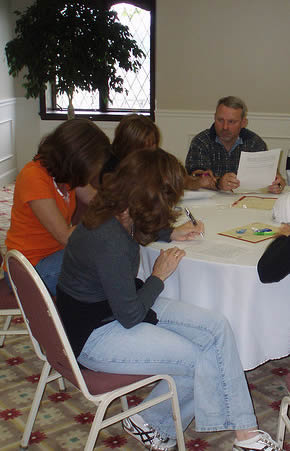 There are two general ways to gain entry into the Nurse Aide I Registry; one is to challenge and pass the competency examinations, while the other is to directly apply for the Registry. The only ones who are allowed to directly apply for the Registry are N.C. RNs and LPNs. Unlike many states, N.C. does not offer reciprocity. Nursing aides looking for work in a N.C. nursing home must first pass the state’s competency exam.
There are two general ways to gain entry into the Nurse Aide I Registry; one is to challenge and pass the competency examinations, while the other is to directly apply for the Registry. The only ones who are allowed to directly apply for the Registry are N.C. RNs and LPNs. Unlike many states, N.C. does not offer reciprocity. Nursing aides looking for work in a N.C. nursing home must first pass the state’s competency exam.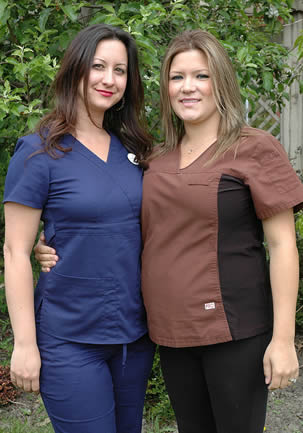 The only way to get into the N.C. NAR is to take on the NNAAP exam. Before one can challenge the exam, the state will require every candidate to establish eligibility. One of the best ways to do so is to complete a N. C. -certified CNA course. The training takes a minimum of 75 hours which will require you to attend both classroom lectures and do practical training in an actual clinical facility, and pass the final exam.
The only way to get into the N.C. NAR is to take on the NNAAP exam. Before one can challenge the exam, the state will require every candidate to establish eligibility. One of the best ways to do so is to complete a N. C. -certified CNA course. The training takes a minimum of 75 hours which will require you to attend both classroom lectures and do practical training in an actual clinical facility, and pass the final exam. Although the tasks that a nursing assistant will do are determined by what the registered nurses delegate, a Nurse Aide I does have its restriction as to what nursing assistant tasks he can do. The main categories that a Nurse Aide I is able to do include:
Although the tasks that a nursing assistant will do are determined by what the registered nurses delegate, a Nurse Aide I does have its restriction as to what nursing assistant tasks he can do. The main categories that a Nurse Aide I is able to do include: In order to be listed on the registry, you must be able to pass the state’s competency testing, which consists of two parts. These parts may either be the written and skills exam or the oral and skills exam, depending on whether you request to take an oral exam instead of a written one during your application. These exams must only be taken at approved testing sites, which should also be indicated by applying.
In order to be listed on the registry, you must be able to pass the state’s competency testing, which consists of two parts. These parts may either be the written and skills exam or the oral and skills exam, depending on whether you request to take an oral exam instead of a written one during your application. These exams must only be taken at approved testing sites, which should also be indicated by applying.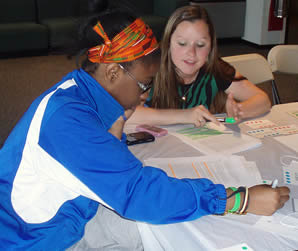 1. Pass the 75-hour training course or a comparable training program and pass the competency exam. Since there are no age requirements to become a nursing aide, there are also training programs that are offered in high schools.
1. Pass the 75-hour training course or a comparable training program and pass the competency exam. Since there are no age requirements to become a nursing aide, there are also training programs that are offered in high schools.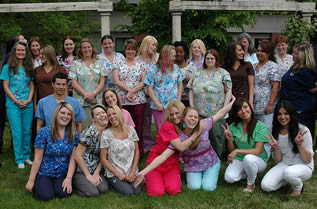 If you wish to increase the scope of your work as a nursing assistant, you can train to become a CMA or a certified medication aide. CMAs are nursing assistants who are trained to give selected medications to patients, while still under the supervision of the nurses and the medical staff.
If you wish to increase the scope of your work as a nursing assistant, you can train to become a CMA or a certified medication aide. CMAs are nursing assistants who are trained to give selected medications to patients, while still under the supervision of the nurses and the medical staff.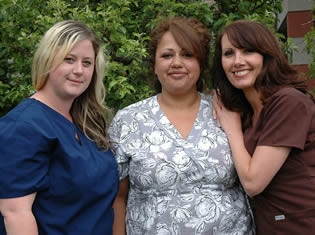 To be a medication aide you must first be listed on the Nurse Aide I Registry with a valid certification and possess an unencumbered record. Individuals who have records of patient abuse, neglect, or misappropriation of patient property are not allowed to proceed and become a CMA.
To be a medication aide you must first be listed on the Nurse Aide I Registry with a valid certification and possess an unencumbered record. Individuals who have records of patient abuse, neglect, or misappropriation of patient property are not allowed to proceed and become a CMA. In order to be eligible to take the exam, you will need to enroll and complete a state-approved training program, which lasts 75 hours of training. You can find these trainings being offered by nursing homes, hospitals, colleges, and private training facilities. Through the Health Occupations Education program, training programs are also offered in high schools; and since there is no age requirement to become a nursing aide, high school students can also enroll in the program if they want to start a career as a nursing aide.
In order to be eligible to take the exam, you will need to enroll and complete a state-approved training program, which lasts 75 hours of training. You can find these trainings being offered by nursing homes, hospitals, colleges, and private training facilities. Through the Health Occupations Education program, training programs are also offered in high schools; and since there is no age requirement to become a nursing aide, high school students can also enroll in the program if they want to start a career as a nursing aide. The NNAAP examinations consist of two parts, which are given on the same date at approved testing sites only. These sites may either be a regional testing site or a training class that was approved to conduct in-facility training.
The NNAAP examinations consist of two parts, which are given on the same date at approved testing sites only. These sites may either be a regional testing site or a training class that was approved to conduct in-facility training. To work as one, all you need is to get certified. Since the state does not offer reciprocity to other states, this means that you will have to challenge and pass the competency test. There are several different ways to become eligible to apply for the test. For example, you can either complete a state-approved nurse aide training course in North Carolina or another state. Those who completed a refresher course may also apply for the exams. If you are a nursing graduate or student of a nursing educational program, you can apply for the exam without the need for additional training.
To work as one, all you need is to get certified. Since the state does not offer reciprocity to other states, this means that you will have to challenge and pass the competency test. There are several different ways to become eligible to apply for the test. For example, you can either complete a state-approved nurse aide training course in North Carolina or another state. Those who completed a refresher course may also apply for the exams. If you are a nursing graduate or student of a nursing educational program, you can apply for the exam without the need for additional training.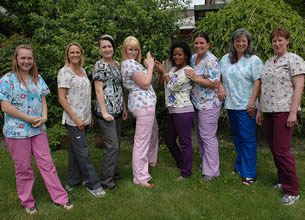 Your training will compromise practical duties and theoretical session in the classroom. While in the program, you will learn different nursing skills and knowledge needed to properly take care of the patients. Among the common topics that are required to be discussed include basic care, infection control, body mechanics, nutrition, patients’ rights and independence, how to assist in their activities of daily living, communication techniques, and safety and emergency procedures. To complete your training, you must meet the required 75 hours of training and pass the program’s final exam.
Your training will compromise practical duties and theoretical session in the classroom. While in the program, you will learn different nursing skills and knowledge needed to properly take care of the patients. Among the common topics that are required to be discussed include basic care, infection control, body mechanics, nutrition, patients’ rights and independence, how to assist in their activities of daily living, communication techniques, and safety and emergency procedures. To complete your training, you must meet the required 75 hours of training and pass the program’s final exam. The exams consist of a 70 item multiple-choice written exam and a skills evaluation of 5 randomly selected nursing skills. Those who have trouble in written English may take an oral exam, which is offered in both English and Spanish. These exams may only be taking at approved testing sites. This may be a regional testing site or a training program that was approved to conduct in-facility testing.
The exams consist of a 70 item multiple-choice written exam and a skills evaluation of 5 randomly selected nursing skills. Those who have trouble in written English may take an oral exam, which is offered in both English and Spanish. These exams may only be taking at approved testing sites. This may be a regional testing site or a training program that was approved to conduct in-facility testing. The exam consists of a written/oral portion and a skills evaluation test. To get into the NAR, you must pass all the tests. Once you do, your name will automatically be entered into the registry. Your record in the Registry will not only contain your name and license number, but other personal information. It will be your responsibility to keep your record in the registry updated. If your record in the registry is out of date, it may result in a delay in your renewal notice. You can update your profile by:
The exam consists of a written/oral portion and a skills evaluation test. To get into the NAR, you must pass all the tests. Once you do, your name will automatically be entered into the registry. Your record in the Registry will not only contain your name and license number, but other personal information. It will be your responsibility to keep your record in the registry updated. If your record in the registry is out of date, it may result in a delay in your renewal notice. You can update your profile by: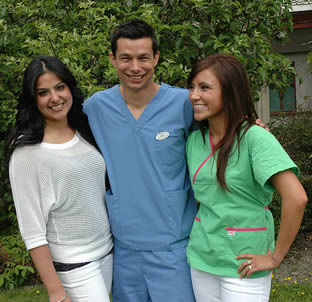 If you want to become one, you will have to meet both the federal and state’s training and testing requirements. The first step to become a nurse aide is by enrolling in a state-certified training course. These courses will give you the education and training you need to function properly as a nurse aide. Since this profession is very in demand, you it is offered in different training institutions including high schools.
If you want to become one, you will have to meet both the federal and state’s training and testing requirements. The first step to become a nurse aide is by enrolling in a state-certified training course. These courses will give you the education and training you need to function properly as a nurse aide. Since this profession is very in demand, you it is offered in different training institutions including high schools. Before you can work as a nursing aide, it is important that you know how to function as one. Your best option is to train and complete a N. C. -approved training program. These programs will teach you a wide array of concepts such as patient care, infection control, safety, emergency care, communication skills, patients’ rights and independence, and many more. Approved programs are required by the state to offer a minimum of 75 hours of training. These hours will comprise of theories and practical training.
Before you can work as a nursing aide, it is important that you know how to function as one. Your best option is to train and complete a N. C. -approved training program. These programs will teach you a wide array of concepts such as patient care, infection control, safety, emergency care, communication skills, patients’ rights and independence, and many more. Approved programs are required by the state to offer a minimum of 75 hours of training. These hours will comprise of theories and practical training. Approved courses are required by the state to offer 75 hours of training. These hours are divided into theories and clinical practice. During that time, you will be supervised by a nurse aide instructor which is a registered nurse that is qualified to supervise and train nursing aide students. As a student, you will learn basic concepts like personal care, elimination, nutrition, body mechanics, communication skills, infection control, safety, emergency protocols, and many more.
Approved courses are required by the state to offer 75 hours of training. These hours are divided into theories and clinical practice. During that time, you will be supervised by a nurse aide instructor which is a registered nurse that is qualified to supervise and train nursing aide students. As a student, you will learn basic concepts like personal care, elimination, nutrition, body mechanics, communication skills, infection control, safety, emergency protocols, and many more. The certification process in North Carolina begins by being eligible to take the NNAAP exam. You can be eligible to take the exam if:
The certification process in North Carolina begins by being eligible to take the NNAAP exam. You can be eligible to take the exam if: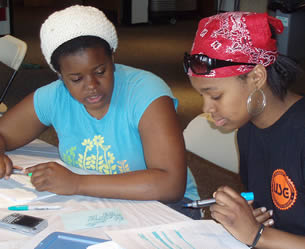 The second choice is for nursing graduates, nursing students, and nursing aides from other states who want to immediately take the evaluation exams. Although not necessary for them, it is highly recommended that they complete a N.C. approved training program before taking the exam to help them prepare.
The second choice is for nursing graduates, nursing students, and nursing aides from other states who want to immediately take the evaluation exams. Although not necessary for them, it is highly recommended that they complete a N.C. approved training program before taking the exam to help them prepare.